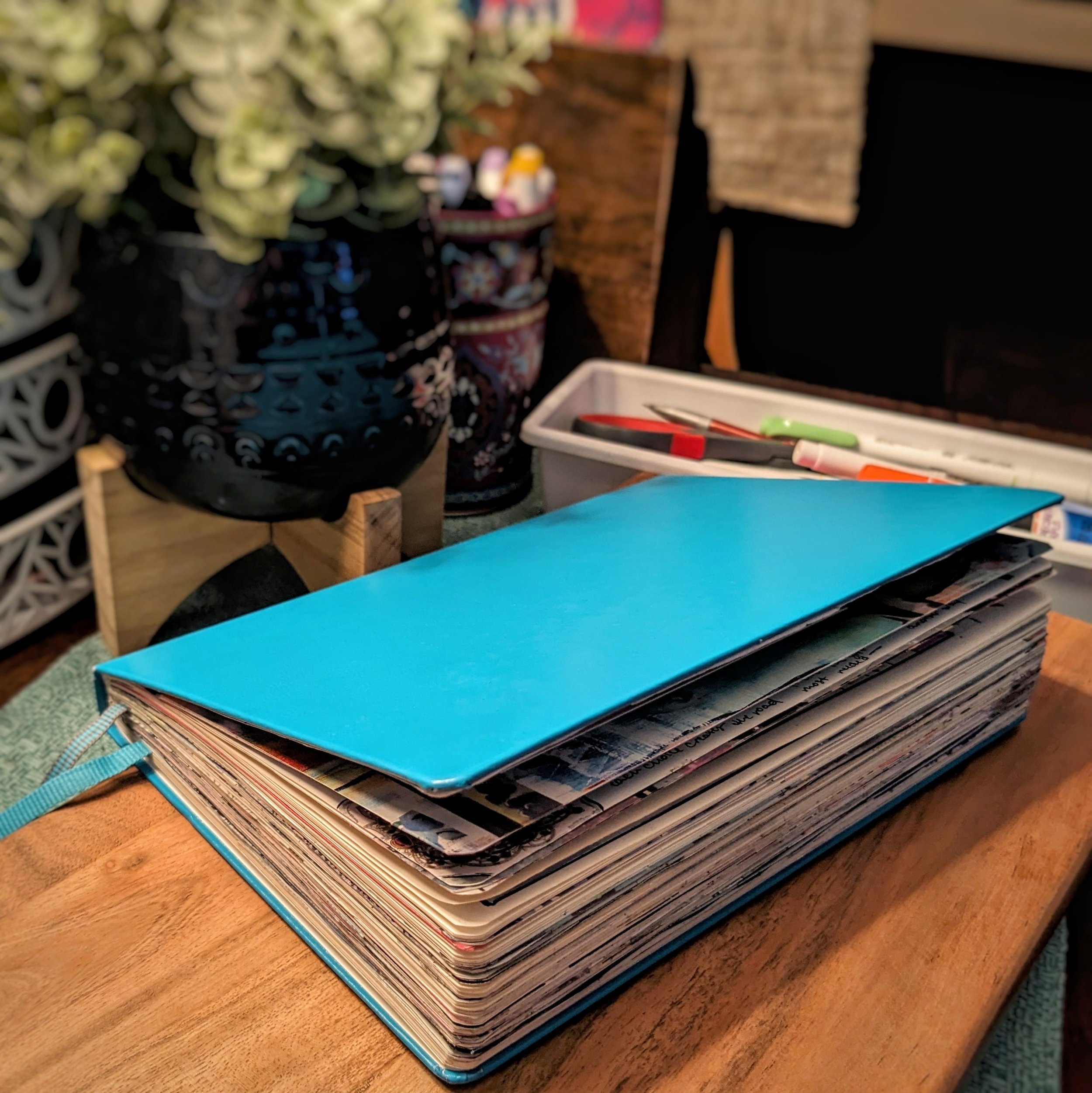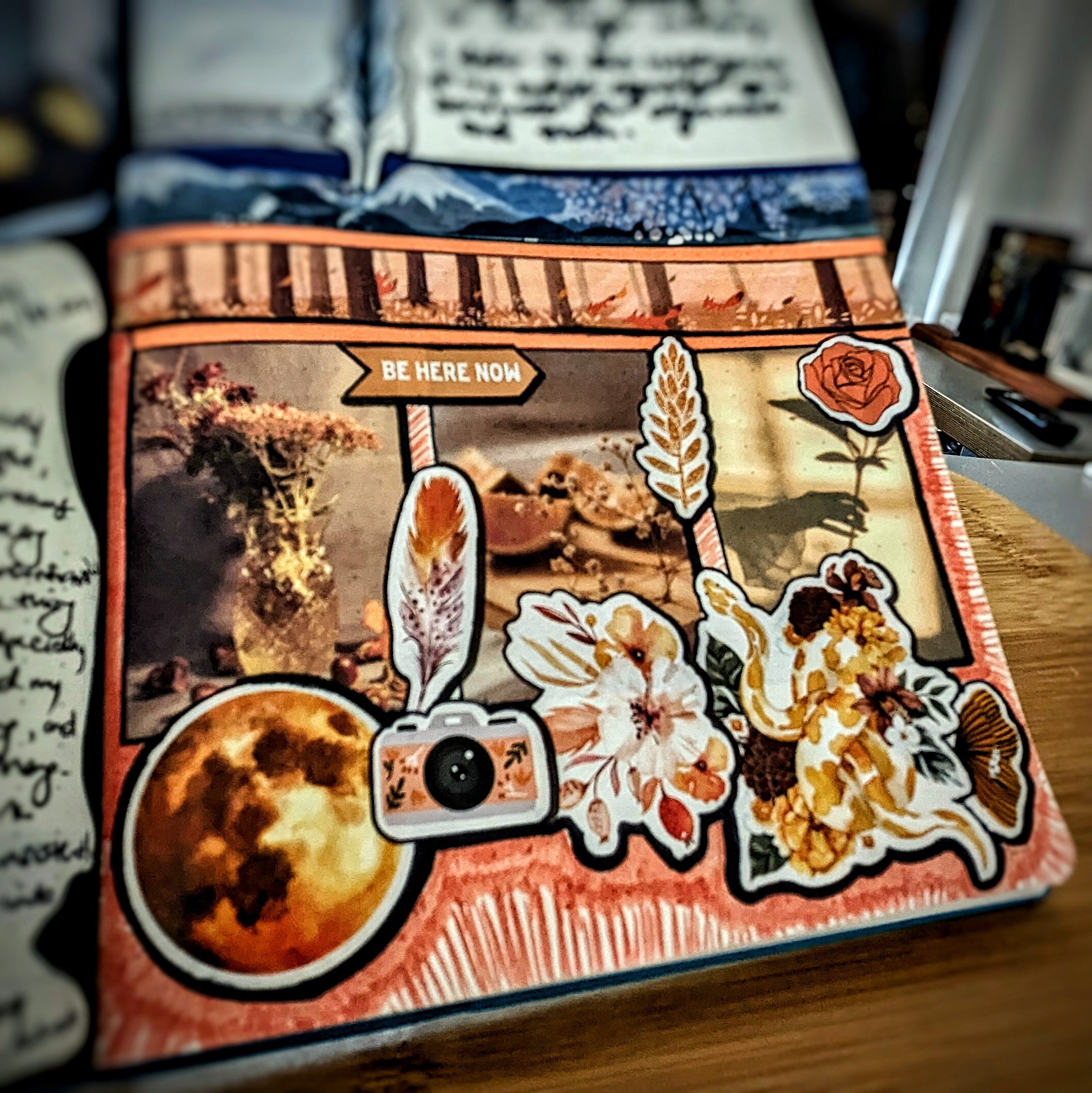journal walk through
I am proud of myself for cultivating an intentional journaling practice for well over eight years now.
While I have spent most of my life scribbling thoughts down inside scattered books and accumulating keepsakes to one day curate, I never quite managed to keep on top of the documentation. It was a series of spiritual awakenings that led me down a path of writing. And it was a series of heartbreaks and personal crises that helped me find solice on the page.
Now, my most recent journals succintly hold the time capsule of my creative and spiritual life . To flip through the pages is to glimpse inside my thoughts, behold my love affair with colors, note what I am learning, and appreciate the progress I am making towards my goals.
Here are a few of the guidelines that govern my daily creation of pages and the ongoing maintenance of my journal.
Mixed media: My journals consist of free-writing, notes, tracking spreads, grimoire pages, and art. I am drawn to collage, so many of the daily pages I create contain prose, poetry, quotes, stickers, doodles and illustrations, tape, diagrams, stationery and recycled paper, calligraphy, and color from highlighters, markers, and fineliner pens. Occassionally I will paint or paste another drawing within the journal.
Seasons: As part of my spiritual practice, I mark the seasons with a new journal— on the autumn equinox, winter solstice, spring equinox, and summer solstice. Because words have deep meaning to me, I named each season according to the element I work with during those months. Autumn is Catalyst for the wind element, winter is Depths for the water element, spring is Ground for the earth element, and summer is Embers for the fire element. Each season contains color correspondences as well. For instance, typically my winter journals are a shade of blue, as a signifier of water.
Tracking pages: In recent years, I have learned a lot from the bullet journal community, and I experimented with various spreads to track my personal goals. I track my habits daily, and I reassess the usefulness of tracking pages on a monthly basis. This way, the tracking pages are always evolving and getting closer to what I need for the current moment.
Monthly, weekly, and daily spreads: As an astrologer, I observe 12 months according to the tropical zodiac signs. So for example, my current Depths (winter) journal starts with Capricorn season on December 21 and will conclude at the end of Pisces season on March 18. Each month has its own divider and set of tracking pages.
Then each week I create a days-of-the-week spread for jotting daily notes and task lists. After the weekly spread, I keep blank pages for daily art, color magic, writing, book reviews, or any other pages I want to create that week.
I hope you have enjoyed my little walk-through. I’ll definitely be diving deeper into my journal practice in the future.









